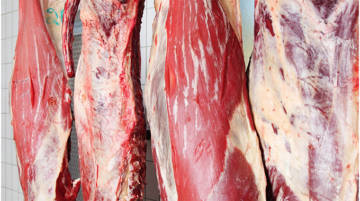
The Sunday News

Mzala Tom
In ancient Ndebele society when a person died, the whole community ceased all important activities like travelling, hunting or farming, until the funeral wake and burial was concluded.
Funeral gatherings were brief as burial had to be conducted the morning after the person died. There were no songs at funerals and people spoke in hushed tones among themselves and when consoling the bereaved. Children were not allowed to play games or sing.
When entering the homestead where there was a funeral wake, a person had to enter the yard in a hunched posture and thereafter sit down (woman) or crouch (man) and address those gathered saying “Langalezo (inkathazo)” and the people would respond by saying “Zibonakele”.

meat
Thereafter, the person had to find a spot and sit quietly with others, speaking in hushed tones. Meat/ingovu eaten at the funeral wake was neither salted nor spiced. The bones of the animal slaughtered were collected and burnt. No ashes were thrown out of the homestead.
A male was buried in the cattle byre (family head) or surrounding areas (any other male) and any female was buried at the back of the homestead where there were granaries.
The grave was dug early in the morning just before the burial and was circular in shape. The legs of the corpse were folded by the family elders into a sitting position. At burial, the body was placed facing the east. Hence a grave/ingcwaba was also called kogoqanyawo.
A person was buried with their personal items like spears, shields, jewellery, cups, plates, etc for use in the presumed afterlife. Kings were buried with their close aides/bodyguards as they were considered to be an extension or part of the king.

Graves
The grave had to be guarded and inspected for some days after the burial to ensure that witches did not tamper with the body.
Also after digging the grave, it had to be guarded until the burial was done to avoid any interference by witches.
However, after colonialism cultural practices changed. There are now cemeteries, people sing hymns at funerals and are treated with lots of food and drinks at funeral services.
Any person who viewed or had contact with the corpse was considered to be. After the burial they had to wash their hands and faces with izintelezi/ herbs to ward off negative spirits associated with death. Close family members applied white medicine below the eyes.
The hut where the corpse laid also had to be cleansed by inyanga/traditional doctor after the burial. After a week or two, the tools that were used to dig the grave were also cleansed through a ritual known as ukugezisa amakhuba.

traditional doctor
After the rituals were completed, the next stage was ukuzila amacansi/abstinence from sex by close relatives for a few days. Furthermore, if the deceased was umninimuzi, his wives had to cut off their hair/icholo and wear bands on the heads/imincwazi to show that they were widows.
The last ceremonies were conducted by the elders of the family to facilitate the safe passage of the deceased into the spirit world. These ceremonies were private in nature and varied from clan to clan.
A year later there was the umbuyiso ceremony, whose primary focus was to bring the deceased back home to care for his family.
This was then followed by the division of the property of the deceased. We shall discuss these in the next thread. — (source: @RealMzalaTom)



